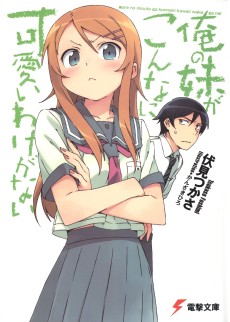ORE NO IMOUTO GA KONNA NI KAWAII WAKE GA NAI. (ONA)
STATUS
COMPLETE
EPISODES
3
RELEASE
August 18, 2013
LENGTH
24 min
DESCRIPTION
Episodes 14-16 of Oreimo 2, to finish adapting the novels of Oreimo.
CAST
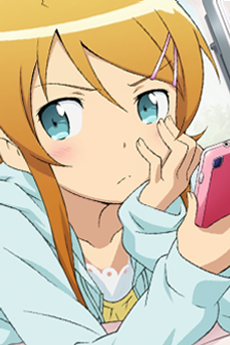
Kirino Kousaka

Ayana Taketatsu
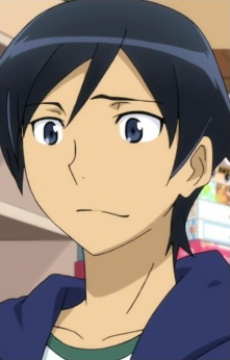
Kyousuke Kousaka
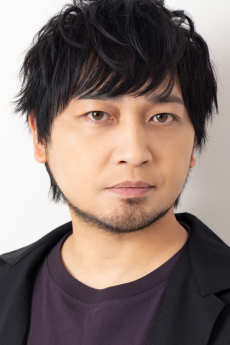
Yuuichi Nakamura
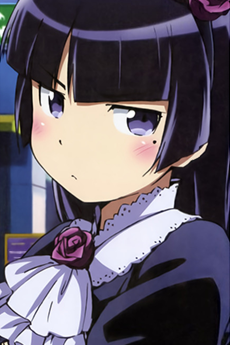
Ruri Gokou

Kana Hanazawa

Ayase Aragaki

Saori Hayami
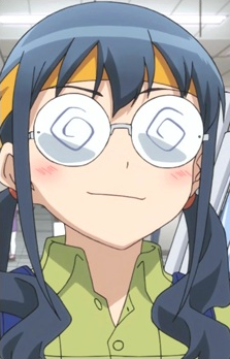
Saori Makishima

Hitomi Nabatame

Manami Tamura

Satomi Satou

Kanako Kurusu

Yukari Tamura
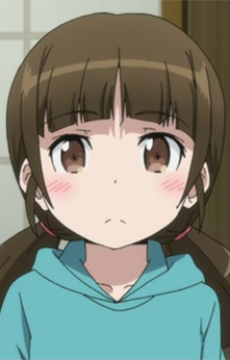
Hinata Gokou

Kana Hanazawa
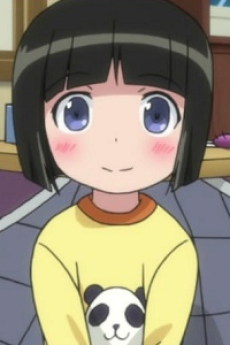
Tamaki Gokou

Yui Ogura
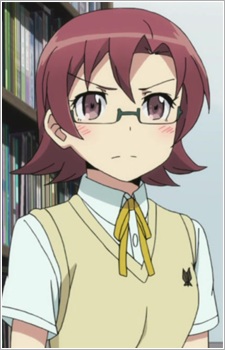
Sena Akagi

Mariya Ise
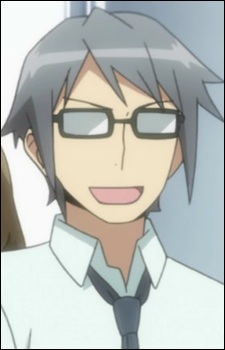
Gennosuke Miura

Gou Inoue
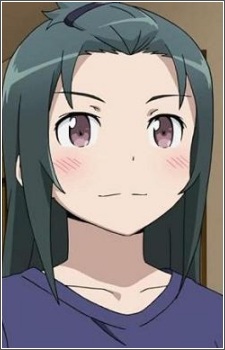
Kaori Makishima

Houko Kuwashima
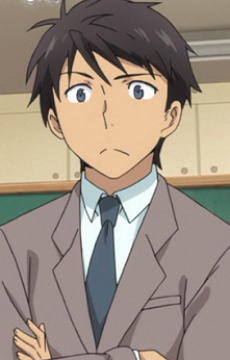
Kouhei Akagi
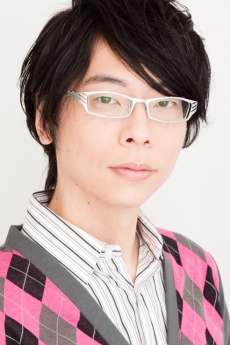
Junji Majima
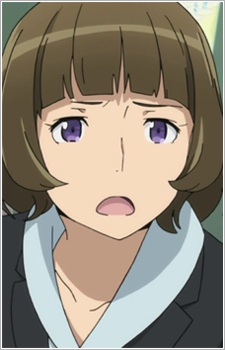
Kouki Mikagami

Yuuichi Iguchi
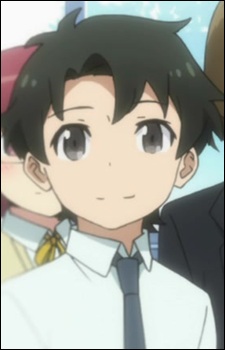
Kaede Makabe
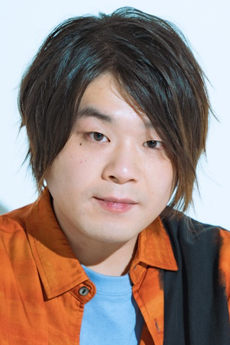
Yoshitsugu Matsuoka
EPISODES
Dubbed

Not available on crunchyroll
RELATED TO ORE NO IMOUTO GA KONNA NI KAWAII WAKE GA NAI. (ONA)
REVIEWS

TGK94
30/100Often regarded as one of the most baffling endings in anime, and for good reason.Continue on AniList(Spoilers for all of Oreimo below...)
The Ending
Things fall apart.
Let's not beat around the bush here: few endings have attracted more ire from fans than this one, and for good reason. Not only is the choice for Kirino and Kyousuke to form a couple utterly bewildering, but every other character in the series gets the short end of the stick to make it happen. Truthfully, the more I think about this ending the more things I find about it to hate. I hate the way Kanako’s feelings for Kyousuke were shoehorned in out of nowhere. I hate the way Manami is treated as the villain despite doing nothing wrong. I hate the apathetic manner that Kyousuke approaches the whole affair. And above all, I hate hate hate the way this ending will forever taint my positive memories of the rest of the series. How could anyone be okay with this? Imagine if, during the K-On! movie, the girls’ plane to London crashed and all of them died. That sounds horrible, doesn’t it? Well, that’s about how I feel about this ending. It’s completely out of place tonally, it’s poorly executed, and it forever haunts the series with this depressing specter.
Now, for fairness sake, before I get too carried away with the complaining, I feel obligated to mention the relatively few things this ONA actually does well. Episode fourteen’s confession scene was actually rather solid on an aesthetic level. If it didn’t come with all the baggage of incest and didn’t involve ruining no less than three girls’ hopes and dreams to make it happen, it might have even been a good scene. The way that Kyousuke tries to catch Kirino by running but ultimately fails to reach her is a nice way of hearkening back to an earlier scene showing that Kirino was inspired to take up running because she couldn’t catch up with Kyousuke many years prior. Likewise, the way Kyousuke ends up being assisted by Saori and Kuroneko really helps bring the narrative together in a neat way by involving all the relevant characters. I also particularly enjoyed Kyousuke’s line during his confession, “all love is gross, whether in eroge or in real life,” as it served as a surprisingly poignant way of rebutting Kirino’s constant proclamations of “gross!” over the course of the series. To sum up, the ending is bad not because of the way it is presented, but in spite of it. Most of the dialogue is good, everything is quite cinematic (in particular, the scene where Kyousuke forever rejects Kuroneko under the streetlamp has always stuck out to me), and production values maintain their quality from the rest of the show. The only problem is, well, the actual events that transpire.
Glad we got that cleared up. Now let’s talk about the bad.
The notion of incest was first noticeably implied around episode two or three of season two, and it only becomes more obvious from there. From this, it seems likely to me that this ending was not a sudden devilish idea upon the part of our good friend Tsukasa Fushimi (the mind behind Oreimo and Eromanga-sensei) but rather a notion that he had been entertaining from early on. With this being as it may, it is astonishing to me that this ending is as messy as it is. Why does everyone confess to Kyousuke during the last five episodes if this was planned from the beginning? Why are so many characters hurt in the end? I simply don’t understand how he could let this happen. The rest of the series shows me that Fushimi is clearly a fairly competent writer, so why? Did he do this as some kind of elaborate commentary on how normalizing incest eroge can lead to an anomie where people no longer see incest as a taboo? Almost certainly not. Will Kirino and Kyousuke’s love even last or is it merely some teenage fling that just happened to ruin the hopes and dreams of everyone around them? We can’t be sure. Ultimately, I don’t think we can ever know exactly what inspired the extraordinary lapse of reason that led to this ending. All we can do is wonder what happened?
I touched on this a bit before, but the worst thing about this ending (and this is a lofty distinction considering the boundless number of things that I hate about the way this show ends) is definitely how damned sad it is. No one ends up happy—not even Kyousuke and Kirino. After their cinematic kiss at the end of the final episode, we are led to believe that they don’t even stay with one another. Society will forever condemn their relationship, they ruined their friendships with several people to make it happen, and in the end they don’t even stay together! If that’s not the dreariest ending imaginable, I’m not sure what is… and they got the good end of the deal. As I have mentioned, Ayase, Kanako, and Kuroneko all have their hopes of love mercilessly shattered, but the truest loser here, I think, is Manami.
Good lord, I’m so sorry Manami. You didn’t deserve this. You didn’t deserve any of this. Not only is the scene that features her in the final episode the most painful in the entire series, it may very well be among the most painful scenes I have ever encountered in an anime. After confronting Kyousuke and Kirino about their relationship, she voices her disgust for what they are doing (a reasonable reaction to have, by all accounts) and then gets into a fistfight with Kirino. I’m not going to lie, I do like Kirino, but there was a real feeling of catharsis in seeing her punched mercilessly in the gut by Manami. Unfortunately, outside of the punch, nothing in this scene goes well for Manami in the slightest. She sustains substantial damage from Kirino herself, ultimately having her glasses broken. This leads to perhaps the eeriest part of the entire series for me. It is difficult for me to describe, but there is something deeply chilling about the way Manami looks without her glasses. The cute softness of her face is all but gone, and we are left with something harsh—almost scary. This is made all the more disturbing by what Manami says in this state: that Kyousuke and Kirino’s relationship can never survive, and more importantly that she has always loved Kyousuke. Kyousuke, of course, rejects her in an irritatingly bombastic fashion. Then, in return she says “that was the worst reply ever”— a line that would almost be funny if it weren’t so sad. In the end, while with Ayase, Kanako, and Kuroneko there was a definite sadness to their rejection, with Manami it’s outright depressing. I can’t help but think of how, after this scene ends, she will go home to realize that she has lost her best friend and love of ten years. And she lost him to his own sister—someone who he can never even stay with. All of this from a show that was once an upbeat comedy series.
I have rarely felt worse after watching an anime than after watching this scene. I felt empty and frantic and even a little bit nauseous. I wanted to bang my head against the wall until it gave way. I wanted to yell “FUCK YOU OREIMO!” at the top of my lungs. I wanted to run as fast as I could to nowhere in particular. Most of all, I wanted to purge this show from my mind, and perhaps from existence entirely. I am not an emotional man, but dear God, this scene—this ending broke me. I’ve heard that when it was first published, this ending caused such an outrage that many previous fans burned the entire series or sold it for almost nothing just to get it out of their possession, and I can see why. This may not be the worst ending ever, but it is certainly the most painful that I have seen. Between the way the harem elements were lazily shoehorned in, the way Kyousuke callously turns down the girls, and above all, the mean-spirited way that Manami is treated in her final scene—all in all, this is an ending that I will probably never forget. But for all the wrong reasons.
Let’s Talk About Incest!
One issue I have been skirting around in the discussion of this show’s ending is, of course, the incest. Now, I am not, on principle, against the use of consensual incest in fiction, but it has a very specific time and place where it is acceptable. Importantly, if a work is going to employ incest as a plot point (and if it wants to be taken seriously), it needs to a) treat the incest as an important plot element and b) treat the incest as a taboo. Neither of these things are really true of Oreimo. In fact, Oreimo’s ending treats incest in a shockingly irreverent fashion. This is particularly odd to me because the first season seemed quite self-aware and contained many jokes poking fun at the way incest is fetishized in modern otaku culture. One of its great strengths was the way it contrasted Kyousuke and Kirino’s growing platonic relationship with the sexual relationships in Kirino’s eroge. Yet, somehow the series ends with a complete reversal: an unequivocal embrace of incest. In a sense, this serves to cheapen the platonic relationship of the first season by suggesting that there was always a sexual element to Kyousuke and Kirino’s relationship. I can only ask: what happened? What was there to be gained by adding the incest element to this show? And if there was anything to be gained, why on earth was it executed so poorly?
To be fair to this show, not every element of the incest was poorly handled. The majority of the second season is dedicated to building up Kirino and Kyousuke’s romantic relationship, so there can be no complaints that it came out of nowhere. Moreover, a good amount of emphasis is placed on showing why the Kousakas developed their feelings for one another. The real star here is season two episode thirteen, which is probably the only genuinely good episode in the latter half of season two. This episode takes the form of an extended flashback narrated by Kirino. According to her, she looked up to her brother as a child but became disillusioned with him as he tended increasingly towards laziness and mediocrity during his adolescence. By the time the chronological start of the series came about, she had come to view the real Kyousuke as an entirely separate person from the brother she once admired as a child. This, I gather, is why she has few inhibitions about thinking about him romantically. Now, obviously this flashback sequence does not provide a complete picture of why this incestuous relationship came about; for instance, it does not explain at all why Kyousuke has no problems thinking about his sister romantically. Even so, it does a genuinely good job of putting Kirino and Kyousuke’s romantic relationship in a more believable context, so the flashback is certainly beneficial to the show’s overall narrative.
Sadly, my praise ends there. While the motivations are fairly well done, the social aspect of the incest is seriously blundered. To see just how poorly this is handled, one need look no further than the aforementioned scene with Manami during the last episode. Since she is really the only character to express discontent with the idea of Kirino and Kyousuke’s incestuous relationship, Manami can be viewed as a sort of voice for society. She says more or less what you would expect any normal person to say in this situation: “I think it’s disgusting for siblings to be in a relationship.” If Manami’s statements led to some kind of real discussion about the implications of incest then perhaps I would be okay with this scene, but that is not what happens. Instead, Kyousuke bellows some impassioned nonsense about how he wants to “bring on that real sister end!” without ever meaningfully engaging with Manami’s ideas. Likewise, when Manami brings up the central question of what the Kousakas’ parents will think, Kyousuke responds with a shallow “Please don’t tell my dad! He’ll kill me!”
This is the crux of the issue. Fushimi appears to believe that merely mentioning that there are moral and social issues at play with incest is sufficient to make it acceptable. Kyousuke, Kirino, and, indeed, the show itself, seem to brush off these issues as though they are totally irrelevant. But, of course, they are not irrelevant. Imagine, if you will, if Vladimir Nabokov's seminal novel Lolita ended with the adult Humbert Humbert marrying 12-year-old Dolores Haze and the only reaction to this was one character who says “Ew, don’t do that.” Obviously, this example is completely absurd, but it is worryingly similar to what happens in Oreimo. Despite incest being a serious taboo (not as serious as pedophilia, but still heavily frowned upon), the only negative reaction it receives is from Manami, and she’s framed as the villain. Saori takes the middle ground, saying that she doesn’t really condone it but that she’s not going to try and stop it either, and everyone else says nothing negative at all. The only explanation I can see for why incest is treated this way in Oreimo is that the writer was only really interested in employing it at a purely shallow, fetishistic level. At the same time, though, he didn’t want to look bad so he pretended to treat it seriously by casually mentioning moral issues. Pure and simple, it’s bad, lazy writing.
In the end, Oreimo’s objectionable treatment of incest is, at best, tasteless, and at worst an active detriment to the entire brother-sister dynamic established by the first season. It’s not bad enough to ruin the show by itself—not for me at least—but combined with the deluge of other shortcomings present in this show’s ending, it seriously taints my viewpoint of the whole series. This is especially unfortunate because I liked the first season before I saw how things concluded—I really earnestly liked it. But I’ll be damned if I ever want to watch, or even think about this show again after witnessing this atrocity of an ending.

groggy1
30/100Might be the biggest troll of the 21st centuryContinue on AniListAre you tired of reading wall after wall of pretentious text?
Do you just want to know if you should watch the darn show?
Me too.SPOILS PLOT POINTS FROM PREVIOUS SEASONS TLDR
As long as you do not watch the last 4:50 of the final episode (or stop watching at around 21:05), Oreimo is a show that is better than it has any right being. After that point, it is immortalized forever in the anime hall of fame as possibly the biggest troll in the “romancing your little sister” genre.
ART AND ANIMATION - Average
If you’re looking at this review I assume you’ve seen at least one episode of Oreimo before. Imagine that, but change absolutely nothing. It looks exactly the same.
MUSIC AND SOUND - Average
Again, it sounds exactly the same as the previous seasons. I was never blown away by the Oreimo EDs unless they starred my literal goddess Kuroneko, and fortunately the first ED is sung by her. The other two are not, and I didn’t find them especially good.
PLOT - Train Wreck
A big chunk of the plot consists of almost every girl Kyousuke has ever laid eyes on confessing their love for him. Each girl has their last moment in the sun before leaving so that Kyousuke and Kirino can be together. I hope it’s not a spoiler to say that in a show that translates to My Little Sister Can't Be This Cute, the little sister wins. There's lots of other scenes that can't be talked about without actually spoiling, but just know that there is a mix of super spicy drama, super emotional romance, and super sad scenes. Season 1 was basically a glorified documentary about otaku, season 2 shifted focus to a more romance/drama oriented series, and these final 3 episodes definitely follow season 2's course.
As mentioned previously, something happens at about the 21 minute mark of the last episode that changes the show completely. It’ll either make you laugh your head off or throw whatever you’re holding at the screen.
CHARACTERS - Pretty Good
Before this, I wasn’t really impressed with Kyousuke as a character. But here he shows what he’s made of. He shows that spine that most harem protagonists lack.
Kirino was 100% tsun and 0% dere at the start of the show, but over time the walls she put up were whittled down to the point where her brattiness became tolerable. I never really liked Kirino much, but she is probably at her best here.
Kuroneko had some great scenes that broke my heart and will remain best girl until the day I die.
I was confused for a long time about why Manami was even included in this show but I finally got my answer here. She plays one of the most important roles in the show, and her climactic scene will either make you love her or hate her.THEMES AND MESSAGE - Absolutely none
I don’t think you watch Oreimo for the deep messages and thought provoking themes. The show spits in your face at the very end anyway, so every theme it presented thus far is also spit on. Truly a modern masterpiece.
RECOMMENDATIONS
If you liked the ending of Oreimo, check out Darling In The Franxx.
Otherwise, check out other incest related shows such as Eromanga Sensei or Domestic Girlfriend or KissxSis or A Sister’s All You Need or Yosuga No Sora or Koi Kaze or the Alfheim arc of SAO or I’m In Love With My Sister or OniAi orCONCLUSION
I loved this show and then all of a sudden I REALLY didn’t. The ending is one of the most infamous bamboozles of all time and leaves a sour taste in my mouth but every time I think back on it I can’t help but laugh at how huge the author’s balls must have been and how naive I was to expect anything better.
Visit my profile @groggy1 to give feedback or to see my other work

NobunagaEdo
30/100True Kuronekommunism has never been triedContinue on AniList
Oreimo is something of a cult anime. If you were vaguely into animes in the 2010s, you've heard about it. Not the first example of a Light Novel to be adapted but probably one of the better example of "romance" themed LNs. But we're not here to talk about the first season, which is actually... pretty decent. Sure, it doesn't really feature any romance, especially between the two siblings, Kyôsuke and Kirino and more something akin to... a brother trying to understand her sister's hobbies? And the ONA with Kureneko is pretty cute, Ruri being a fun character all around helps a lot and really, she has more alchemy with Kyôsuke than Kirino and that's the Monkey Pawn.
Despite the foregone conclusion, I wanted to believe in a dream: that of the supreme victory of Comrade Ruri Gotô over the perfidious little sister, for there is no purer love than that of a kouhai and her senpai (and of course, soldiers of opposing factions making out in space).
But Oreimo is history not because Kirino "wins". Nah, it is because it sacrifice its entire cast of characters and its stakes only for an ending that feels lukewarm even to people who think that the sexiest thing in a girl is that you share the same parents.
A word to describe Oreimo's ending is cowardice. The equivalent of a yuri in which the two girls end up marrying men because love between girls is "just a phase" or "nothing serious". It's not an actual wedding ceremony and they outright state that yeah, they stop once they'll graduate. So, what was the fucking point? Is there... nothing serious? Nothing worth going not against a childhood friend but the entire love? In a story in which Kyôsuke pulls increasingly bold stunts for Kirino's sake, this conclusion is just frustrating. And I don't even like Kirino!

And really, it makes you think about the point of all this. The point of adding a lot of characters, only to make ALL OF THEM fall for Kyôsuke, even characters who outright hate his guts or why even bothering with making this a story with incest when it's handled this casually by the story. "We cannot get married"? I mean yeah but that's kind of the least of your issues but everyone is... mostly fine, beside a single character. It makes you question why incest is such a prevalent theme in fiction (or porn), especially in an era in which people are retreating into themselves, in which seeking out new people is seen as a chore and if the childhood friend is a stapple of romance, the little sister is its extreme conclusion: someone you know since their very birth, who has been living with you this entire time.
Kirino's victory was nothing surprising. But man, what a hollow victory.
SIMILAR ANIMES YOU MAY LIKE
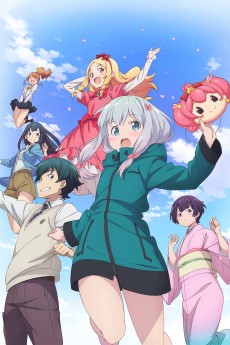 ANIME ComedyEromanga Sensei
ANIME ComedyEromanga Sensei
SCORE
- (2.95/5)
MORE INFO
Ended inAugust 18, 2013
Main Studio A-1 Pictures
Favorited by 168 Users



